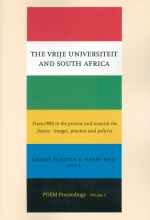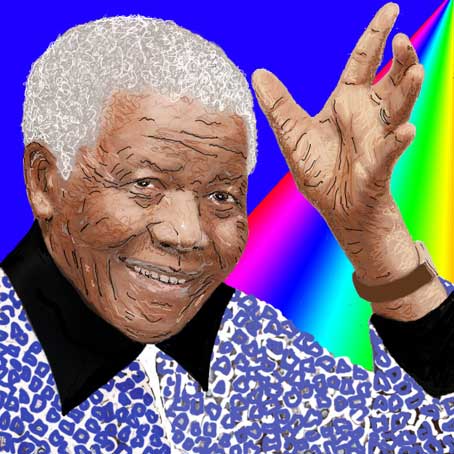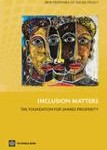POEM: Political Studies In South Africa. A Personal Perspective.
 2005. First, let us consider the discipline’s demography in South Africa. Over the last ten years political studies or political science has been taught in each of the country’s 21 universities. Aspects of the discipline were also taught in public administration courses at polytechnics; several of these institutions are now being amalgamated with universities. Historically, as with other areas of social science, politics as an academic community was sharply divided, socially and intellectually between the English language universities and the Afrikaans medium institutions. Within Afrikaner departments, traditionally, the discipline was influenced quite heavily by American behaviouralist and quantitative social science models and methods and researchers tended to focus their work within the confines of the formal political system (including the structures of ethnic homeland government). At the segregated black universities, departments were often led and staffed by graduates from Afrikaans institutions as well as from UNISA.
2005. First, let us consider the discipline’s demography in South Africa. Over the last ten years political studies or political science has been taught in each of the country’s 21 universities. Aspects of the discipline were also taught in public administration courses at polytechnics; several of these institutions are now being amalgamated with universities. Historically, as with other areas of social science, politics as an academic community was sharply divided, socially and intellectually between the English language universities and the Afrikaans medium institutions. Within Afrikaner departments, traditionally, the discipline was influenced quite heavily by American behaviouralist and quantitative social science models and methods and researchers tended to focus their work within the confines of the formal political system (including the structures of ethnic homeland government). At the segregated black universities, departments were often led and staffed by graduates from Afrikaans institutions as well as from UNISA.
In English speaking departments, by the 1980s, Marxist approaches had supplanted traditionally liberal ideas about politics and leading researchers concentrated their attention on popular political movements, emphasising those dimensions of their activities and ideas that corresponded most closely with expressions of class consciousness. In this context, the study of the discipline had a strong historical dimension: indeed at institutions such as Wits and Cape Town the boundaries between a ‘revisionist’ history grounded in Marxist conceptions of political economy and the discipline of politics became very blurred indeed. Today, though legacies of these differences between Afrikaans and ‘English’ institutions remain, the distinctions between Afrikaans-speakers and English language practitioners of the discipline in South African are less important, particularly since the introduction of English language courses at Afrikaans universities. Read more
POEM: Some Trends In South African Academic History: Changing Contexts And Challenges
 Seismographic social and political shifts introduced the 1990s: the end of the Cold War, the demise of communism abroad, and in South Africa the official end of apartheid and the subsequent instalment of a new democratic government. Given these developments it is reasonable to expect that historians, who construct their versions of the past in the present, and are at least to some degree influenced by that present, should, in the light of wider contextual changes, re-evaluate their approaches and revise their interpretations. The relationship between societal change and historical production is, however, not a simple one-to-one function.
Seismographic social and political shifts introduced the 1990s: the end of the Cold War, the demise of communism abroad, and in South Africa the official end of apartheid and the subsequent instalment of a new democratic government. Given these developments it is reasonable to expect that historians, who construct their versions of the past in the present, and are at least to some degree influenced by that present, should, in the light of wider contextual changes, re-evaluate their approaches and revise their interpretations. The relationship between societal change and historical production is, however, not a simple one-to-one function.
It is against this background that this paper seeks to identify and briefly explore selective developments pertaining to the dynamics of the historical profession in South Africa and the intellectual correlates that help to define the current nature of the enterprise. The paper focuses only on certain aspects and makes no claim to have covered the vast and treacherous area exhaustively.
Academic historians and the question of growth
The 1990s were not the most auspicious of times for the profession. Instead of bewailing this fact, it may be more profitable to apply historical insights to the phenomenon and to ask what are the conditions that are particularly conducive for the expansion of the historical enterprise as practiced professionally? This necessitates a brief look at the contextual forces that helped to shape the profession in South Africa. Read more
Governance and Development in Southern Africa – Development Policy Review Network
On 13 November 2007, some thirty Dutch and South African practitioners, policy makers and academics, all working on the subject of governance and development in southern Africa, came together for a day of discussions. Although all grappling with similar subjects in their respective professional lives, these three groups of professionals seldom meet each other in forums that are explicitly designed to foster debates and cooperation across the professional boundary lines.
The Proceedings from the Third DPRN regional expert meeting on Southern Africa (2007 – published 2010) .
2. Henk Molenaar and Marjoke Oosterom – Negotiating knowledges for development
3. Anshu Padayachee and Ashwin Desai – Post-apartheid South Africa and the crisis of expectation
Public-Private Partnerships in Rural Development, Downplaying the Role of Politics and Power Relations – DPRN Two
Introduction
Public Private Partnerships, or PPPs, are increasingly popular in the field of international development cooperation and sustainable development. Though PPPs are not a new phenomenon (see Linder 1999), their popularity in policy circles has steadily augmented since the late 1980s (Entwistle and Martin 2005) to a point where their promotion seems to have become a dominant ‘development narrative’ (cf. Roe 1991; 1995). PPPs are promoted as the most logical solution to a variety of service delivery and development problems, and are often presented as ‘technical’, politically neutral solutions (cf. Ferguson 1990). Nevertheless, the promotion and development of PPPs has a distinct ideological background and flavour (Linder 1999; Entwistle and Martin 2005). PPP’s present popularity followed after their (re-)introduction in the wake of the wave of privatisation of government institutions by conservative governments in Europe and the US – notably the Reagan administration and Thatcher’s government – in the 1980s. The idea of the need for the privatisation of government services was exported to developing countries through the many Structural Adjustment Programmes enforced by the IMF and supported by the World Bank. PPPs were considered ‘softer’ versions of the same process (Entwistle and Martin 2005) that would have less dramatic social consequences and therefore would be more palatable to the general public. Subsequently, New Labour stressed the partnership idea in PPPs, and the influence it is supposed to accord not only to the corporate sector, but also to civil society organisations (ibid.). However, there is an ongoing debate about whether the growing influence of civil society organisations is a counterpoint to the neo-liberal approach, as Escobar (1995) argues, or whether this is part and parcel of a neo-liberal approach (see e.g. Levine 2002). Read more
Negotiating Knowledges for Development – DPRN Three
A Tribute to Saartjie Baartman
I’ve come to take you home –
home, remember the veld?
the lush green grass beneath the big oaks trees
the air is cool there and the sun does not burn.
I have made your bed at the foot of the hill,
your blankets are covered in buchu and mint,
the proteas stand in yellow and white
and the water in the stream chuckle sing-songs
as it hobbles alone over little stones.
I have come to wretch you away –
away from the poking eyes
of the man-made monster
who lives in the dark
with his clutches of imperialism
who dissects your body bit by bit
who likens your soul to that of Satan
and declares himself the ultimate god!
I have come to soothe your heavy heart
I offer my bosom to your weary soul
I will cover your face with the palms of my hands
I will run my lips over lines in your neck
I will feast my eyes on the beauty of you
and I will sing for you
for I have come to bring you peace.
I have come to take you home
where the ancient mountains shout your name.
I have made your bed at the foot of the hill,
your blankets are covered in buchu and mint,
the proteas stand in yellow and white –
I have come to take you home
where I will sing for you
for you have brought me peace
Diana Ferrus
Saartjie Baartman
This poem, written by the South African Diana Ferrus, refers to the return of Saartjie Baartman to her home country. On Women’s Day, 9 August 2002, the remains of Saartjie Baartman were finally laid to rest in the area of her birth, the Gamtoos River Valley in the Eastern Cape. Thus ended a long period of exile in life and in death of a young Khoikhoi woman, who was to become an icon in South Africa as a victim of the horrors of colonialism and racism.
Born in 1789 and orphaned in a commando raid, Saartjie Baartman became the servant of the Dutch farmer Johan Cezar near Cape Town. When his brother Henrik Cezar and his friend, the ship’s doctor William Dunlop, visited Johan in 1810, they met with Baartman and convinced her that it would be to her advantage to accompany them to Europe. Each for his own reasons wanted to make the most out of her physical characteristics. From the 17th century onward, Europeans had been fascinated by the steatopygia, the broad hips and large buttocks, of Khoikhoi women. Furthermore, Khoikhoi women knew the custom of elongating the labia to conform to an ideal of beauty. The resulting sinus pudoris, or ‘curtain of shame’ equally was a source of fascination frequently mentioned in both popular and scientific literature. Read more
Nelson Mandela 1918 – 2013
Nelson Mandela’s Inaugural Address – May, 10, 1994





